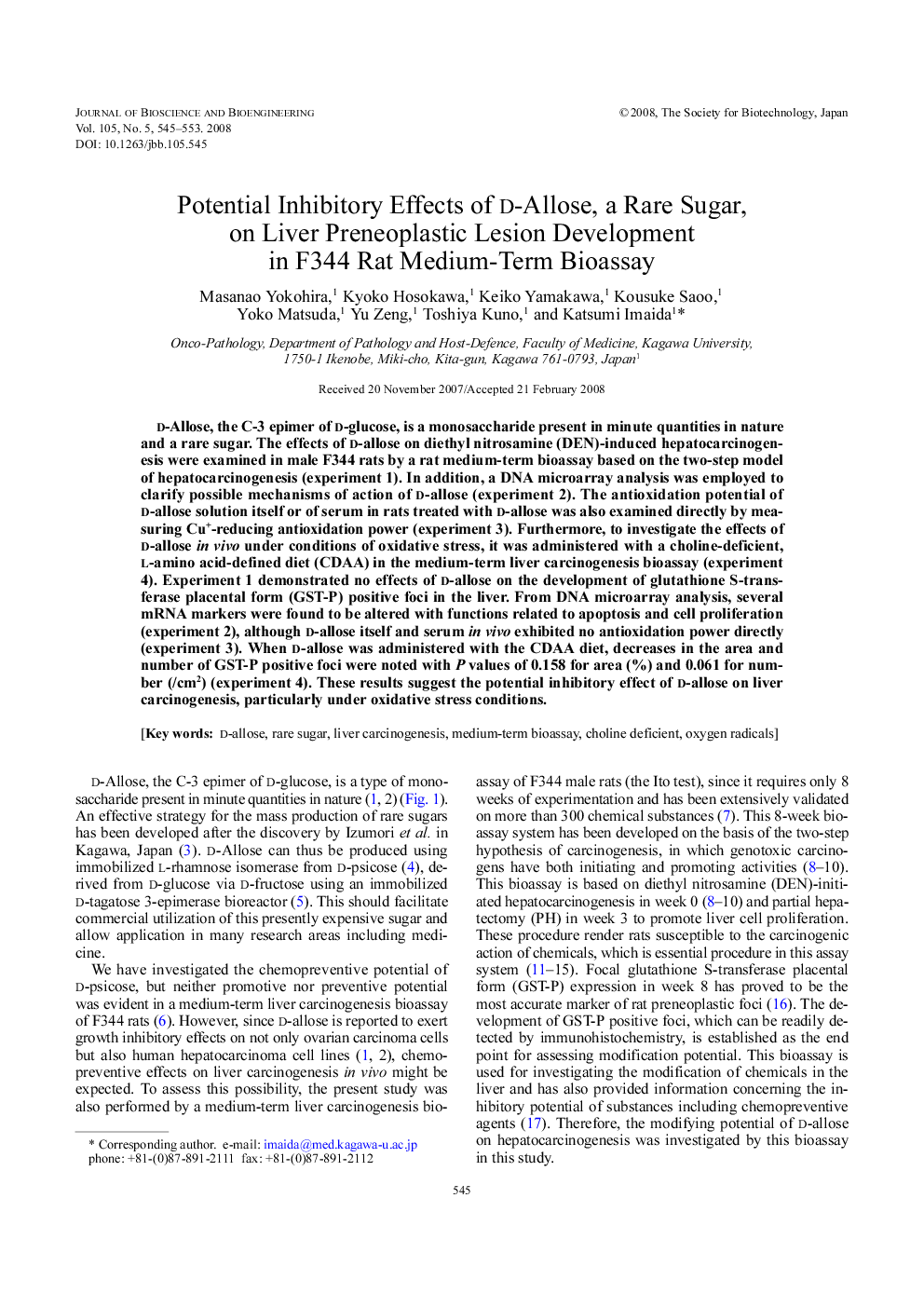| Article ID | Journal | Published Year | Pages | File Type |
|---|---|---|---|---|
| 22094 | Journal of Bioscience and Bioengineering | 2008 | 9 Pages |
d-Allose, the C-3 epimer of d-glucose, is a monosaccharide present in minute quantities in nature and a rare sugar. The effects of d-allose on diethyl nitrosamine (DEN)-induced hepatocarcinogenesis were examined in male F344 rats by a rat medium-term bioassay based on the two-step model of hepatocarcinogenesis (experiment 1). In addition, a DNA microarray analysis was employed to clarify possible mechanisms of action of d-allose (experiment 2). The antioxidation potential of d-allose solution itself or of serum in rats treated with d-allose was also examined directly by measuring Cu+-reducing antioxidation power (experiment 3). Furthermore, to investigate the effects of d-allose in vivo under conditions of oxidative stress, it was administered with a choline-deficient, l-amino acid-defined diet (CDAA) in the medium-term liver carcinogenesis bioassay (experiment 4). Experiment 1 demonstrated no effects of d-allose on the development of glutathione S-transferase placental form (GST-P) positive foci in the liver. From DNA microarray analysis, several mRNA markers were found to be altered with functions related to apoptosis and cell proliferation (experiment 2), although d-allose itself and serum in vivo exhibited no antioxidation power directly (experiment 3). When d-allose was administered with the CDAA diet, decreases in the area and number of GST-P positive foci were noted with P values of 0.158 for area (%) and 0.061 for number (/cm2) (experiment 4). These results suggest the potential inhibitory effect of d-allose on liver carcinogenesis, particularly under oxidative stress conditions.
